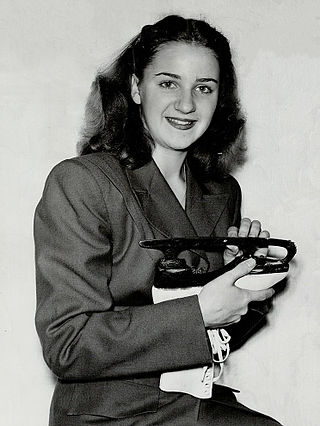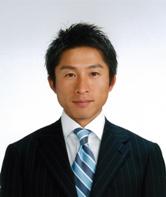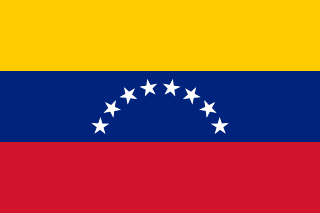
The Winter Olympic Games, also known as the Winter Olympics, is a major international multi-sport event held once every four years for sports practiced on snow and ice. The first Winter Olympic Games, the 1924 Winter Olympics, were held in Chamonix, France. The modern Olympic Games were inspired by the ancient Olympic Games, which were held in Olympia, Greece, from 776 BCE to 394 CE. The Baron Pierre de Coubertin of France founded the International Olympic Committee (IOC) 1,500 years later in 1894, leading to the first modern Summer Olympic Games in Athens, Greece in 1896. The IOC is the governing body of the Olympic Movement, with the Olympic Charter defining its structure and authority. The original five Winter Olympic Sports were bobsleigh, curling, ice hockey, Nordic skiing, and skating. The Games were held every four years from 1924 to 1936, interrupted in 1940 and 1944 by World War II, and resumed in 1948. Until 1992, the Summer Olympic Games and the Winter Olympic Games were held in the same year. A decision to change this was made in 1986, when during the 91st International Olympic Committee session, IOC members decided to alternate the Summer Olympic Games and the Winter Olympic Games on separate four-year cycles in even-numbered years. Also, at that same congress it was decided that 1992 Winter Olympics would be the last to be held in the same year as the Summer Games and that to change the rotation, the games that would be held in 1996 would be brought forward by two years, being scheduled to 1994. After those games, the next were to be held in 1998 when the four-year Olympic Cycle resumed.
The Olympic Oath is a solemn promise made by one athlete, judge or official, and one coach at the Opening Ceremony of each Olympic Games. Each oath taker is from the host nation and takes the oath on behalf of all athletes, officials, or coaches at the Games. The athletes' oath was first introduced for the 1920 Summer Olympic Games, with oaths for the officials and coaches added in 1972 and 2010. The oath is usually said in the language of the nation which is hosting the games; however, in 1994 both the athletes' and officials' oaths were said in English. Until the 1984 games the oath takers swore upon their nation's flag; since then all have taken the oath whilst holding the Olympic Flag. All three of the oaths were combined into one beginning at the 2018 Winter Games.

The 1992 Winter Olympics, officially known as the XVI Olympic Winter Games and commonly known as Albertville '92, were a winter multi-sport event held from 8 to 23 February 1992 in and around Albertville, France. Albertville won the bid to host the Winter Olympics in 1986, beating Sofia, Falun, Lillehammer, Cortina d'Ampezzo, Anchorage, and Berchtesgaden. The 1992 Winter Olympics were the last winter games held in the same year as the Summer Olympics. The Games were the fifth Olympic Games held in France and the country's third Winter Olympics, after the 1924 Winter Games in Chamonix and the 1968 Winter Games in Grenoble. This games was the first of two consecutive Olympic games to be held in Western Europe, preceding the 1992 Summer Olympics in Barcelona, Spain.

Carol Elizabeth Heiss Jenkins is an American former figure skater and actress. Competing in ladies' singles, she became the 1960 Olympic champion, the 1956 Olympic silver medalist, and a five-time World champion (1956–1960).

Vegard Ulvang is a retired Norwegian cross-country skier who won three Olympic gold medals, two silver, and one bronze. At the opening ceremony of the 1994 Winter Olympic Games, he took the ceremonial Olympic Oath on part of all the athletes. In addition to his Olympic achievements, he received the Holmenkollen medal in 1991, and won the World Cup in 1990. He has also won nine gold, six silver, and two bronze medals in the Norwegian Championships. He earned nine World Cup race victories. Ulvang also won the 50 km at the Holmenkollen ski festival in 1989, 1991 and 1992.

Suzanne Morrow Francis was a Canadian figure skater and veterinarian. She competed in Ladies' Singles in the 1948 and 1952 Winter Olympics. Between 1947 and 1948, Francis competed in Pairs Mixed competitions with Canadian figure skater Wallace Diestelmeyer. Together they won the bronze medal at the 1948 Winter Olympics and the 1948 World Figure Skating Championships. They were the first pair team to perform the death spiral one-handed, with the man holding the woman in position with one hand, at the 1948 Olympic Games.

Short-track speed skating has been a contest at the Winter Olympics since the 1992 Winter Games in Albertville, France. Prior to that, it was a demonstration sport at the 1988 games. The results from the 1988 demonstration competition are not included in the official Olympic statistics. The sport has been dominated by teams from East Asia and North America, namely South Korea, China, Canada and the United States. Those four countries have won 147 of 195 medals awarded since 1992. South Korea leads the medal tally, with 53 medals including 26 golds since 1992. The majority of medals that South Korea and China have won at the Winter Olympics come from short-track speed skating.

Torbjørn Falkanger was a Norwegian ski jumper who was active in the late 1940s and early 1950s.

Kenji Ogiwara is a Japanese politician and former Nordic combined skier who won several medals at the Winter Olympics, the FIS Nordic World Ski Championships, and the Holmenkollen ski festival.

The Paralympic symbols are the icons, flags, and symbols used by the International Paralympic Committee to promote the Paralympic Games.
Paul Aste was an Austrian bobsledder and luger who competed during the 1950s and the 1960s. He also took the Olympic Oath for athletes at the 1964 Winter Olympics in Innsbruck.

The 1990 Winter Pan American Games, officially known as the I Winter Pan American Games and commonly known as Las Leñas 1990, were held in Las Leñas, Argentina, from 16 September to 22 September 1990. They were the only Winter Pan American Games. 97 athletes from eight countries participated in one sport.

Venezuela first participated at the Olympic Games in 1948, and has sent athletes to compete in every Summer Olympic Games since then. Venezuela has also participated in the Winter Olympic Games since 1998. The Venezuelan Olympic Committee (COV) was created in 1935.

Luis Doreste Blanco is a Spanish sailor who won gold medal both in the 1984 Summer Olympics, and in the 1992 Summer Olympics in Barcelona.

Giuliana Chenal-Minuzzo was an Italian alpine skier.
Dragan Perović was a Yugoslavian alpine skier and sport official from Montenegro. He was best known for taking the Official's Oath at the 1984 Winter Olympics in Sarajevo.
Eugeni Asensio is a Spanish water polo sports official best known for taking the Judge's Oath at the 1992 Summer Olympics in Barcelona.
Kari Elida Kåring is a Norwegian speed skater and sports official.

The Olympic Games ceremonies of the ancient Olympic Games were an integral part of the games; modern Olympic Games have opening, closing, and medal ceremonies. Some of the elements of the modern ceremonies date back to the ancient games from which the modern Olympics draw their ancestry. An example of this is the prominence of Greece in both the opening and closing ceremonies. During the 2004 Summer Olympics, the medal winners received a crown of olive branches, which was a direct reference to the ancient games, in which the victor's prize was an olive wreath. The various elements of ceremonies are mandated by the Olympic Charter, and cannot be changed by the host nation. Host nations are required to seek the approval of the International Olympic Committee (IOC) for ceremony elements, including the artistic portions of the opening and closing ceremonies.

The 2015 European Youth Olympic Winter Festival was held in Vorarlberg, Austria and Liechtenstein between 25 and 30 January 2015. It was the first time that two countries become hosts in a European Youth Olympic Festival.














